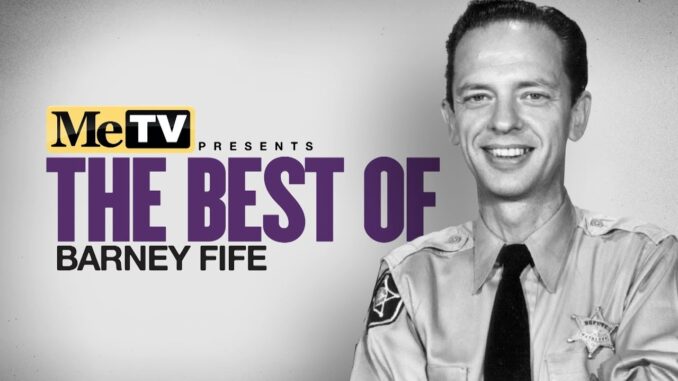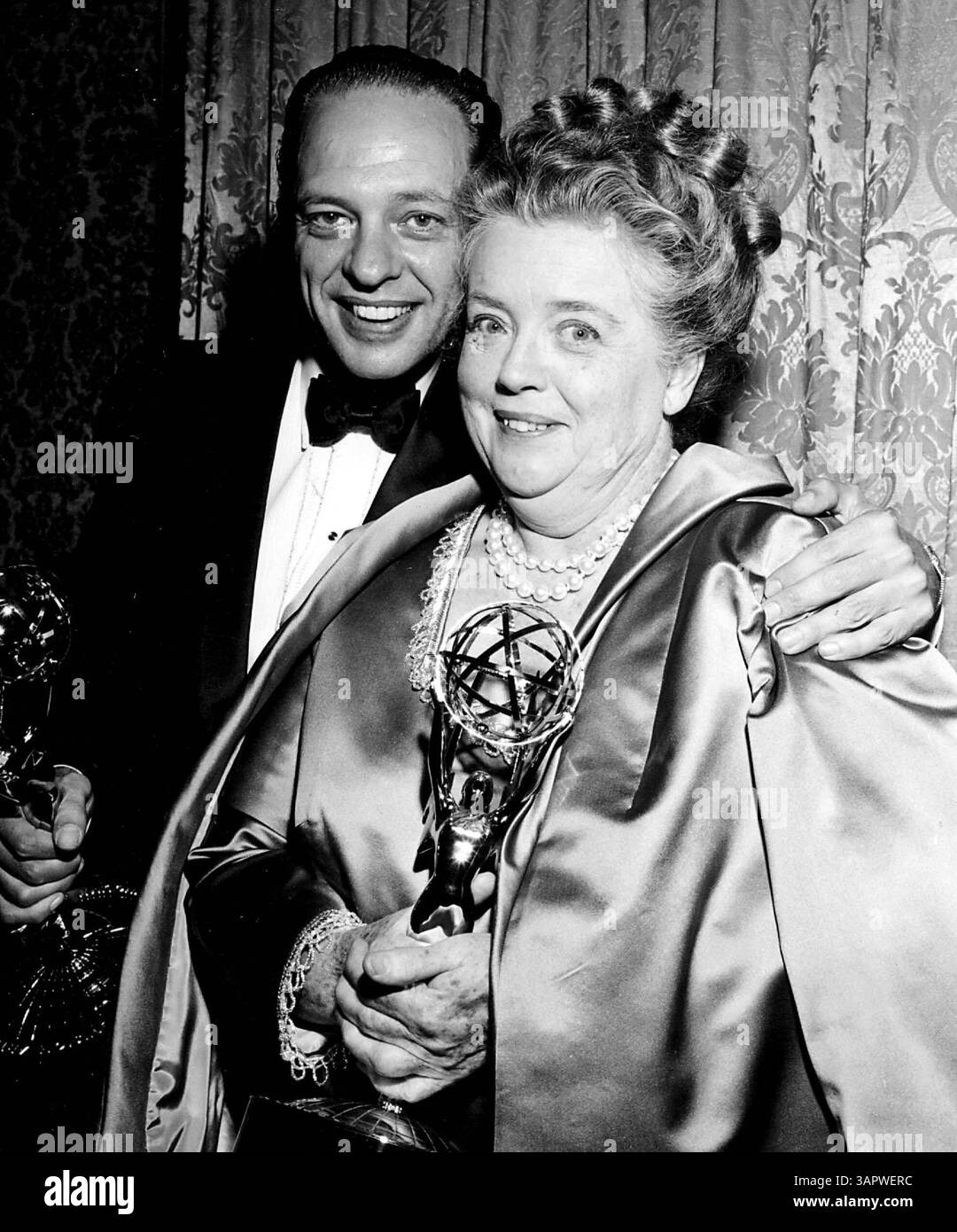
Introduction: Don Knotts, A Comedy Legend with a Heavy Heart
When you think of Don Knotts, chances are you picture the wide-eyed, nervously twitchy Deputy Barney Fife from The Andy Griffith Show. He was a comedic genius, a five-time Emmy winner, and one of the most beloved TV stars of all time. But here’s the twist—behind that infectious humor and screen brilliance was a man riddled with self-doubt, who regularly referred to himself as a “loser.” It’s a paradox that leaves fans stunned.
Let’s dive deep into Don Knotts’ life—the brilliance, the burdens, and the unseen emotional battles of one of television’s most iconic performers.
The Rise of a Comedy Icon
Early Life: Growing Up Was No Laughing Matter
Don Knotts was born in Morgantown, West Virginia, in 1924. His childhood was far from easy. He grew up in a family plagued by financial hardship and emotional tension. His father suffered from schizophrenia and died when Don was just 13.
Using Comedy as a Shield
Knotts learned early that laughter could be a defense mechanism. He often used humor to cope with his rough upbringing. This early conditioning shaped his approach to life and performance.
How The Andy Griffith Show Changed Everything
The Breakthrough Role of Barney Fife
Don Knotts’ portrayal of Deputy Barney Fife was nothing short of revolutionary. The nervous, rule-bound lawman provided a perfect foil to Andy Taylor’s calm, collected sheriff. Audiences loved it—and so did Emmy voters.
A Five-Time Emmy Winner
Between 1961 and 1967, Knotts won five Emmys for Outstanding Performance in a Supporting Role in a Comedy. That’s no small feat—it cemented his legacy as one of TV’s greatest comedic actors.
Behind the Curtain: Don Knotts’ Battle with Insecurity
The Shock of Self-Perception
Despite the fame, fortune, and acclaim, Don Knotts would often call himself a “loser.” Not just in passing, but seriously. In private interviews and even with colleagues, he confessed to feeling like he didn’t measure up.
Why Would a Star Feel This Way?
This wasn’t just humility—it was deep-rooted self-doubt. It likely stemmed from childhood trauma, early failures, and a sense of unworthiness that success couldn’t erase.
Andy Griffith’s Perspective on Don Knotts
Their On-Screen Chemistry Wasn’t an Act
Andy Griffith and Don Knotts shared a rare bond, both on and off screen. Griffith once said that he believed Don was “the funniest man in television,” but he also noticed Don’s internal struggle.
Griffith Tried to Reassure Him
Andy would often try to build Don up, reassuring him of his worth and importance to the show. But even words from his close friend couldn’t undo years of self-criticism.

The Perfectionist Inside the Performer
Obsessed with Getting It Right
Knotts was known for meticulously preparing for each scene. He would rehearse over and over to perfect every line and facial twitch. His need to be flawless was both a strength and a source of torment.
Comedy Was a High-Stakes Game
For Don, comedy wasn’t just a career—it was a tightrope walk. One misstep and he feared it could all collapse. That kind of pressure eats at even the strongest personalities.
Post-Mayberry: A Mixed Bag of Success
Hollywood Didn’t Know What to Do with Him
After leaving The Andy Griffith Show, Knotts pursued film roles. He starred in classics like The Ghost and Mr. Chicken and The Incredible Mr. Limpet, but none matched his Barney Fife success.
Critics Were Harsh
While fans adored his work, critics often dismissed his movies as light fare. The lack of critical acclaim only fueled Knotts’ internal narrative that he was a “loser” outside of Mayberry.
Don Knotts’ Personal Life Was Just As Complicated
Struggles with Marriage and Relationships
Knotts was married three times, and his relationships were often strained. His relentless work ethic, coupled with his emotional baggage, made lasting intimacy difficult.
A Family Man with Deep Regret
His daughter, Karen Knotts, later revealed that while her father loved her deeply, he always felt guilty about not being emotionally available during her childhood.
The Weight of Typecasting
Barney Fife Became a Blessing and a Curse
As beloved as Barney Fife was, the role became a typecasting nightmare for Knotts. He struggled to break free from the goofy sidekick image, and Hollywood rarely gave him a chance to show range.
Knotts Wanted to Be More Than Funny
He dreamed of doing serious drama, of exploring characters with depth. But those roles never really came.
Mental Health Awareness Wasn’t What It Is Today
Therapy Was Taboo in Knotts’ Era
In the 1960s and ’70s, discussing mental health was nearly unheard of, especially for men. Knotts carried his emotional burdens largely in silence.
His Pain Stayed Hidden Behind the Laughs
He masked his insecurity with humor so successfully that even fans who adored him had no idea he suffered.
Legacy: A Legend Who Didn’t Know His Worth
He Changed Television Forever
Don Knotts’ influence on television comedy is undeniable. From sitcoms to variety shows, his style and timing were revolutionary.
The Love from Fans Never Wavered
Despite his doubts, fans never stopped loving him. He was celebrated everywhere—from rerun marathons to award shows.
Remembering Don Knotts Today
Karen Knotts Keeps His Story Alive
Karen, a stand-up comedian herself, wrote a memoir titled Tied Up in Knotts to honor her father’s legacy and humanize the man behind the laughs.
He Taught Us All That Funny People Hurt Too
Don Knotts left us in 2006, but his characters still fill living rooms across America. He reminds us that even those who make us laugh the hardest often carry the heaviest hearts.
Conclusion: Don Knotts—A Comedy Genius Who Battled His Own Mind
Don Knotts made the world laugh like few others could. His timing, his expressions, his very presence—pure genius. But behind the curtain, he wrestled with deep-seated feelings of inadequacy. It’s a sobering truth about a man who brought joy to millions yet felt unworthy of that very joy himself.
His story is more than just about fame or laughter—it’s about the invisible scars we all carry and the importance of recognizing our worth. Let’s not just remember Don Knotts as the man who played Barney Fife—let’s remember him as a brilliant artist who deserved to feel as celebrated as he truly was.
FAQs
1. Why did Don Knotts call himself a “loser”?
Despite his massive success, Knotts struggled with lifelong self-doubt rooted in a difficult childhood and emotional insecurities that success never erased.
2. How many Emmys did Don Knotts win for The Andy Griffith Show?
He won five Emmys for his portrayal of Barney Fife, a record-setting achievement for a comedic supporting role.
3. Did Don Knotts ever pursue therapy or mental health help?
There is no public record of Knotts seeking therapy, likely due to the cultural stigma surrounding mental health during his time.
4. Was Don Knotts close with Andy Griffith in real life?
Yes, they shared a deep friendship and professional respect. Griffith frequently praised Knotts’ comedic talent and supported him during tough times.
5. What is Don Knotts’ legacy today?
Don Knotts is remembered as one of TV’s greatest comedic actors. His influence endures through reruns, tributes, and the continued love of fans around the world.